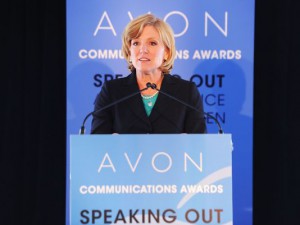 The holiday shopping season is already here, and women around the world are going to spend billions of dollars that will keep retail and consumer companies in the black. Women possess enormous economic clout, but it isn’t adequately reflected in the corporate boardroom, and that is a serious business mistake.
The holiday shopping season is already here, and women around the world are going to spend billions of dollars that will keep retail and consumer companies in the black. Women possess enormous economic clout, but it isn’t adequately reflected in the corporate boardroom, and that is a serious business mistake.
Did you know that supermarket chains Supervaluand Roundy’s do not have a single woman on their boards? Or that Rite Aid, Dean Foods and Casey’s General Store each has only one woman on their boards? They are just a few well-known brands whose financial success depends on what women decide to buy.
Women, a billion of whom will enter the workforce worldwide over the next decade, control $20 trillion in consumer spending yearly. They are a growth market, bigger than China and India combined.
Women’s domain
Most retailers know that women influence about 85% of buying decisions in the USA (65% globally), not only for themselves but for their families, their workplaces and the businesses they have created. But do retailers also know that women are the majority of Internet users, online consumers, social media drivers and mobile commerce adopters, and they account for 50% of stock ownership in America?
Given this competitive global economy, retail and consumer goods companies need to be cognizant of who make up their market and to secure directors with an understanding of what drives that market. This has nothing to do with affirmative action but is a clear business imperative.
A new study by Corporate Women Directors International surveyed 168 retail and consumer goods companies globally, finding that women held just 18.4% of the board seats at these major companies. While higher than the 15% representation in the 200 largest companies in the world, the numbers of women on the boards of the retail and consumer products firms do not come close to reflecting the critical role that women play in this market.
Importance of diversity
A series of studies from different countries have shown a correlation between greater gender diversity in corporate leadership and better long-term financial performance. The most recent is a Credit Suisse report that found large companies with more female directors outperformed peer companies without women directors by 26% during the 2005-11 recession.
A McKinsey study showed that most C-suite executives understand and accept the ‘business case’ of women in corporate leadership. Unfortunately, only 30% act on it.
Some retail and consumer companies, however, do get it. Among the companies surveyed, the study found that 10 women-led companies had double the percentage of women directors — 35.8% vs. the industry average of 18.4%.
It’s no surprise that the company leading the 15 retail/consumer products companies with the highest percentages of female board members is Avon Products, whose CEO is a woman and whose 10-member board has six female directors.
Clearly, the majority of corporate executives haven’t caught on to the reality of women’s market clout. It is time that they wake up, recognize the economic benefits of creating more inclusive leadership and begin shopping for women to serve on their boards.
Irene Natividad is chair of Corporate Women Directors International and president of the Global Summit of Women based in Washington, D.C.
In addition to its own editorials, USA TODAY publishes diverse opinions from outside writers, including our Board of Contributors. To read more columns like this, go to theopinion front page or follow us on twitter @USATopinion or Facebook.

